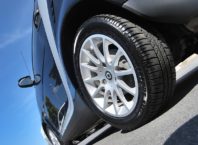Electric scooters are popping up everywhere. Whether you’re cruising down the streets of Tampa or on vacation in big cities like Chicago or Washington, D.C., you’re bound to see these devices being ridden around (or laying around) everywhere you go.
Brands such as Lime and Bird have provided new, fun opportunities to get around or just kill some time. However, these devices also come with a slew of risks both for the person riding and for the people around them.
While some people swear by these inventions of modern-day, others are convinced that their downfalls outweigh the convenience. The latter perspective has made big waves. In fact, new bills are being considered in several states that would more heavily regulate or restrict electric scooter companies and the riders using them.
So, what’s causing all these complaints and deeper legislative change? Here, we’re looking at the drawbacks to electric scooters and how they affect our cities.
Contents [show]
Electric Scooter Downsides
Scooter critics often make these arguments against them:
- Lack of accessibility.People often leave scooters wherever they want once they’re done with them.With scooters laying around all over the sidewalks,it makes for a lot of safety hazards when proper walkways and routes aren’t clear. If someone trips and hurts themselves over a scooter, who’s to blame?
- Risk to other pedestrian traffic. Cars require training, licensing, and following of rules. There are cops on the sides of roads monitoring speed and behavior regularly. With scooters, there are no manuals. There is no training, and there are no regulations on who can or can’t ride. Many people argue that this inexperience of the operators can lead them to behave dangerously on the sidewalks. It can cause harm to pedestrians or make them uncomfortable on the sidewalks in avoiding being hit.
- Lack of rule following. While many scooter apps have rules that they expect their riders to follow, it’s difficult to enforce them digitally. Many scooter users do not wear helmets or abide by the age restrictions. This is in part because there’s no regulatory body to monitor it.
- Operating while impaired.Most people don’t see these scooters as legitimate vehicles. As such, they don’t think twice about hopping on them while intoxicated or impaired. Whereas they might never think of getting behind the wheel of a car when at that same level, the same thought process doesn’t apply for sidewalk scooters, in their minds.
Justice for Victims of Scooter Injury
Because of all the reasons stated above, there have been many injuries that have resulted from the use of these electric scooters.
People are hit by them while walking down the sidewalk. They trip over them while walking into a storefront. Plus, riders suffer from getting in accidents without wearing a helmet.
As a result, there’s been an influx in personal injury lawsuits related to these scooters. The law is still trying to understand how to regulate them and who to blame for these kinds of injuries, so there’s a lot of debate about the right way to go about it.
Because this means of transportation is so new, it can leave victims feeling helpless about where to seek help for problems resulting from scooters. Regardless of the case, it’s important to understand that negligence is negligence no matter what. If there is someone else at fault in the situation, you can and should hold them accountable in order to receive compensation for the suffering and pain experienced from the injury.
If you need help in San Francisco, Miami, Chicago, New York, the Orlando area, or any of the other cities that have electric scooter programs, contact a trustworthy and experienced personal injury attorney. They will help you understand your rights and receive the proper compensation.












